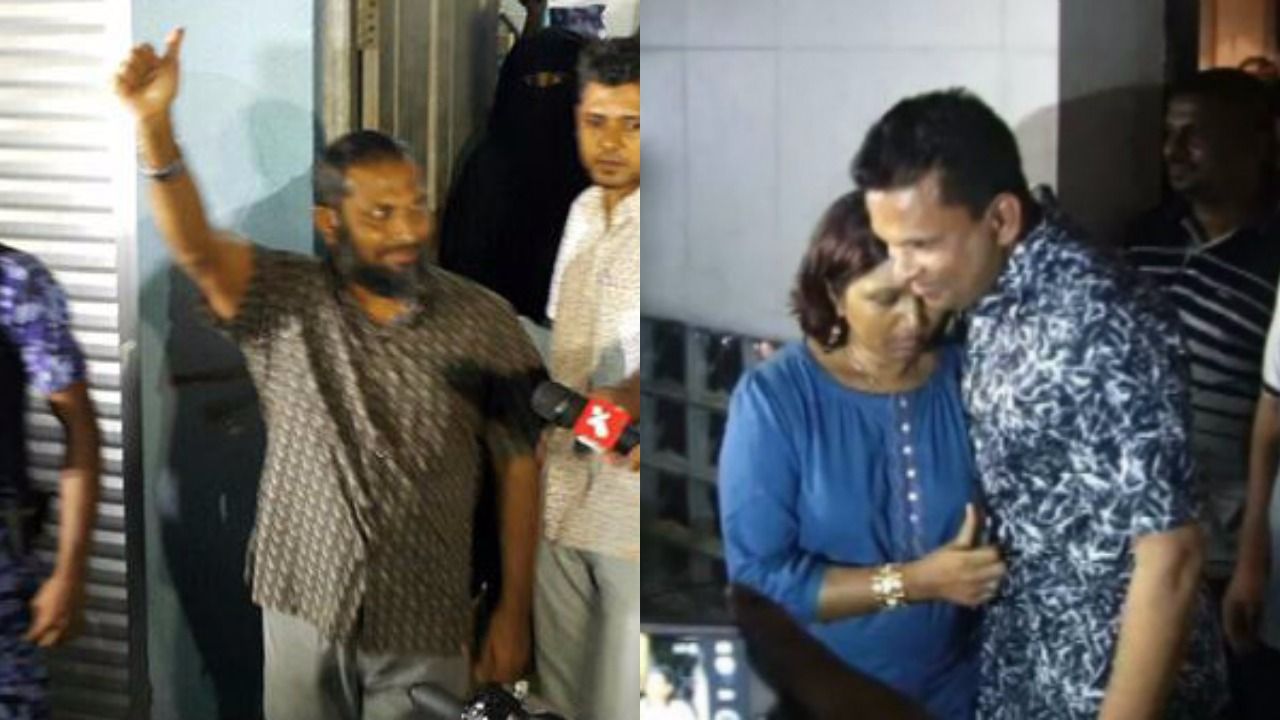Sheikh Imran and Nazim transferred to house arrest
The high-profile prisoners were transferred for the duration of the fasting month of Ramadan, which began Saturday.

28 May 2017, 09:00
Adhaalath Party leader Sheikh Imran Abdulla and former Defence Minister Mohamed Nazim were transferred from prison to house arrest Friday.
Ahmed Lugman, spokesman for the Maldives Correctional Service, told the Maldives Independent that the high-profile prisoners were transferred for the duration of the fasting month of Ramadan, which began Saturday.
The decision was made by Commissioner of Prisons Ahmed Shihan, he added.
After almost a year under house arrest, Nazim was taken back to jail on March 29 amid a “ramped up crackdown” in the wake of the opposition alliance’s failed bid to remove the speaker of parliament.
Become a member
Get full access to our archive and personalise your experience.
Already a member?
Discussion
No comments yet. Be the first to share your thoughts!
No comments yet. Be the first to join the conversation!
Join the Conversation
Sign in to share your thoughts under an alias and take part in the discussion. Independent journalism thrives on open, respectful debate — your voice matters.




